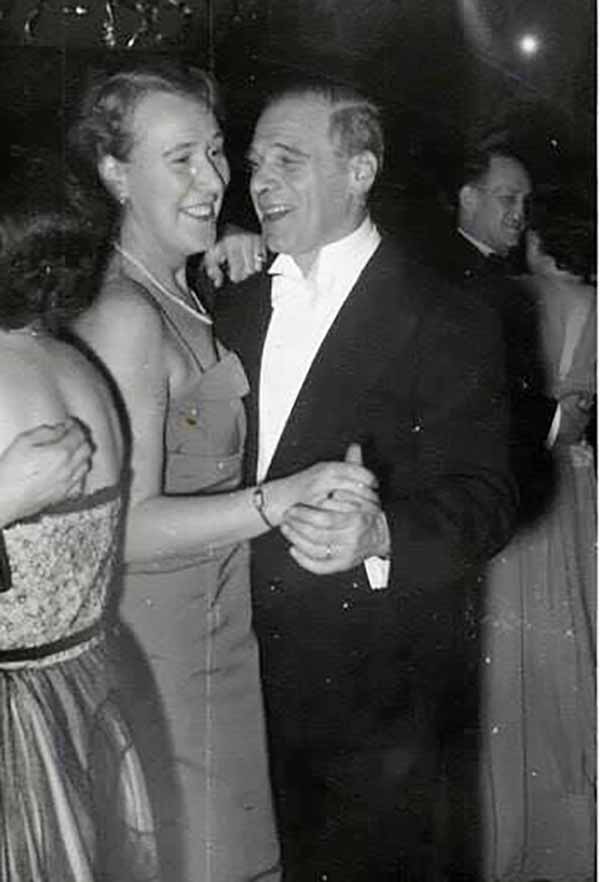Jewish Families who set up a tannery in Shrigley to be remembered at special event
The Jews who escaped from a troubled central Europe who helped save the village of Shrigley are to be remembered at a special event in the village next week.
A permanent plaque is to be unveiled to honour the Jewish families who set up a leather tannery at the height of the 1930’s Depression when hunger was rife in Shrigley.
The Jewish businessmen were fleeing from Hitler’s persecution of Jewish families in Europe and arrived, largely from Czechoslovakia, to set up the award-winning tannery which processed sheep skins and cow hides.
The ceremony will be held on the night of Bank Holiday Monday, May 27, at 7.30pm and an open invite has been extended to all current and past residents of the village, plus ex-workers in the leather tannery.
It is the opening event in a year-long series of events being organised to mark the 200th anniversary of the foundation of Shrigley this year.
The events will climax in a Back to Shrigley fun and sports day on Saturday10 August.

It was October 1939 that the Down Recorder newspaper report was declaring.”Shrigley resurgent!”
The Utitz brothers, Alfred and Jacob, who were both Jews, and they arrived along with another Jew, Walter Weiniger, an Austrian, to establish United Chrometanners.
They set up base in the derelict linen spinning mill which had closed on Hallowe’en night 1930, which led to nine years of severe hardship and starvation in Shrigley.
Walter Weiniger lived in what is now Shrigley Lodge, with Jacob Utitz living in the adjoining Rose Cottage (since demolished) and Alfred Utitz living initially in a house in Catherine Street in Killyleagh.
The story of how the Utitz brothers arrived from Czechoslovakia by an unusual route was first told in the official history of the village, Farewell to Dear Old Shrigley, which is being revised and updated to mark the 200th anniversary.
In 1938, after the partition of their country to Germany, the brothers were faced with a predicament in the operation of their tannery in Prague.
They were asked to help make up for the loss of export income resulting from the loss of parts of the country to Germany.

They had heard of the depression in the United Kingdom and decided to travel to London to inquire about starting a small leather finishing plant to augment their operations in Czechoslovakia.
The Utitz brothers were told that there were two particularly depressed areas. The north-east of England and Northern Ireland.
They travelled firstly to Durham to examine an old mill but Alfred’s son, Erik, recalled years later that it was “awful” and unsuitable for the intended use.
They decided then to consider the possibilities offered by Northern Ireland, making contact with Mr. James Stewart at the Northern Ireland Office in London.
Stewart had said: “I will show you the worst place. If you take that you can have what you like from the authorities’. This was Shrigley.”
The brothers were told that Shrigley was the most socially deprived area during the Hungry Thirties. It was, according to one of those encouraging them to set up, “an absolutely awful situation.”
Erik recalled that they were shown the old, five-storey mill building but they quickly told their escort they were not interested in such a large building.
They were only interested initially in a small operation to finish leather skins. They were then told that they could take the ground floor alone if that suited.
Events in the wider world led to a change in those plans before the year was out as Hitler started to make his murderous way across Europe.
The old spinning mill and preparing rooms were adapted for use as a tannery under the supervision of H. A. Daniel, of London.
Initially the plan was for no more than a dozen workers but when tanning began in November 1939, there were 90 workers.
The tannery operated under the title of United Chrometanners and they were able to use an old Utitz family trade mark, UTA, in selling their finished leather products.
The other Jews in the early years included Erwin Pollatschek, Jaroslav Horoenovsky, Nichola Vermes, Erick Flaschner, Joseph Dub, Eric Biss, Jan Seykora and Anthony Jelinek.
Another of the Europeans who left a lasting legacy was Ladislav Moucka.
Jacob Utitz died in 1948 and his brother, Alfred, died two years later at the age of 69. Control of the firm was now left with Erik. The tannery made remarkable progress.
It was for the production of light leathers and suede’s that UCT at Shrigley became world famous, culminating in them winning the Queen’s Award to Industry in 1966.
UCT was taken over in 1974 and tanning in Shrigley eventually ended in 2004.
Relatives of some of the original families have indicated they will travel to Shrigley for the event, including Walter Weiniger’s son.
























